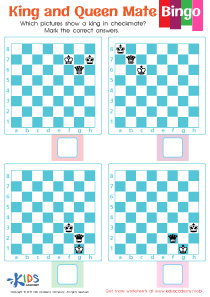Problem-Solving Skills Normal Chess Worksheets for 6-Year-Olds
6 filtered results
-
From - To
Discover our engaging Problem-Solving Skills Normal Chess Worksheets tailored for 6-year-olds! Designed to inspire young minds, these worksheets incorporate fun chess scenarios that promote critical thinking and strategic skills. Perfect for beginning learners, they help children enhance their cognitive abilities while enjoying the game of chess. With colorful graphics and easy-to-follow instructions, each worksheet encourages kids to analyze situations, anticipate outcomes, and make decisions, fostering an early love for problem-solving. Ideal for parents and educators alike, these printable resources provide a fantastic way to introduce essential skills in an enjoyable context. Start your child's intellectual journey today with our chess worksheets!
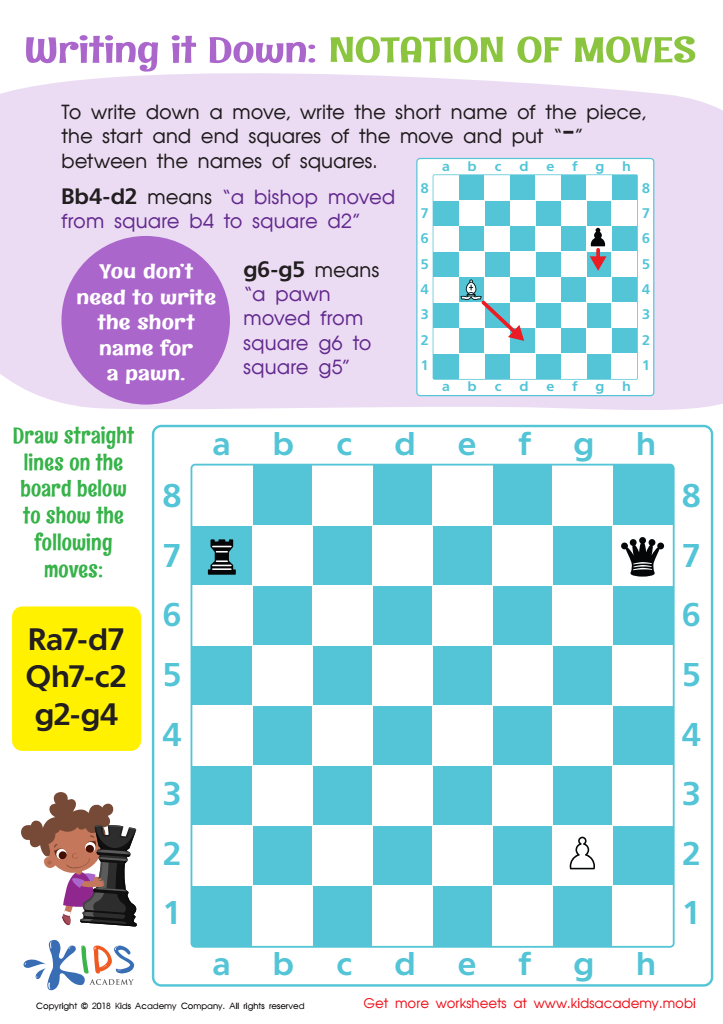

Notation of Moves Writing it Down Worksheet
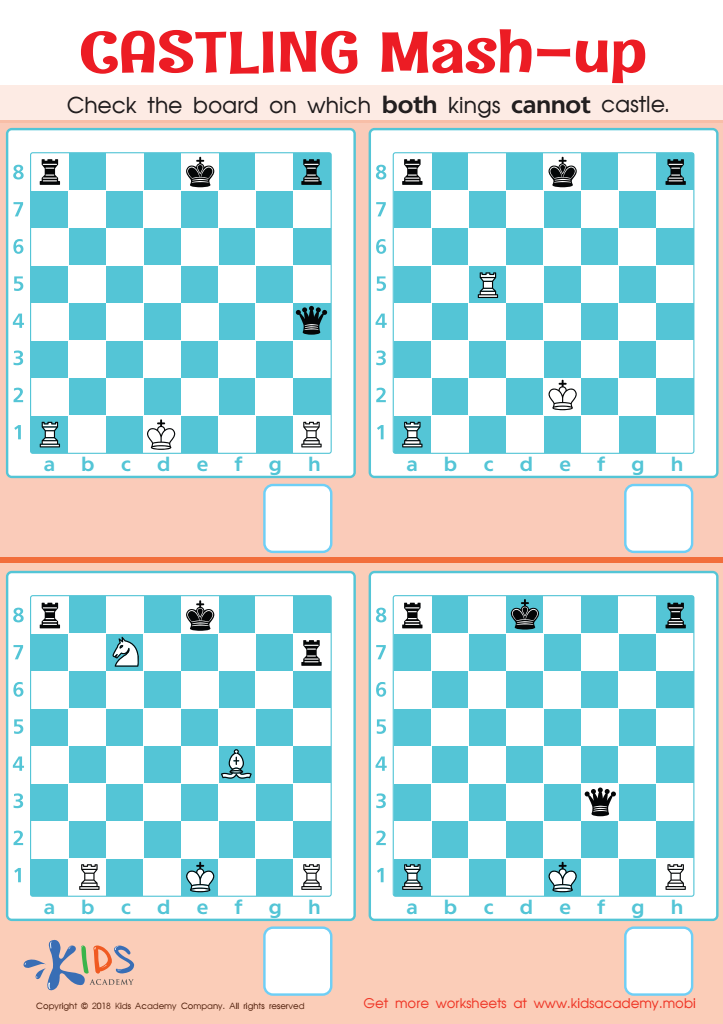

Castling Mash–up Worksheet
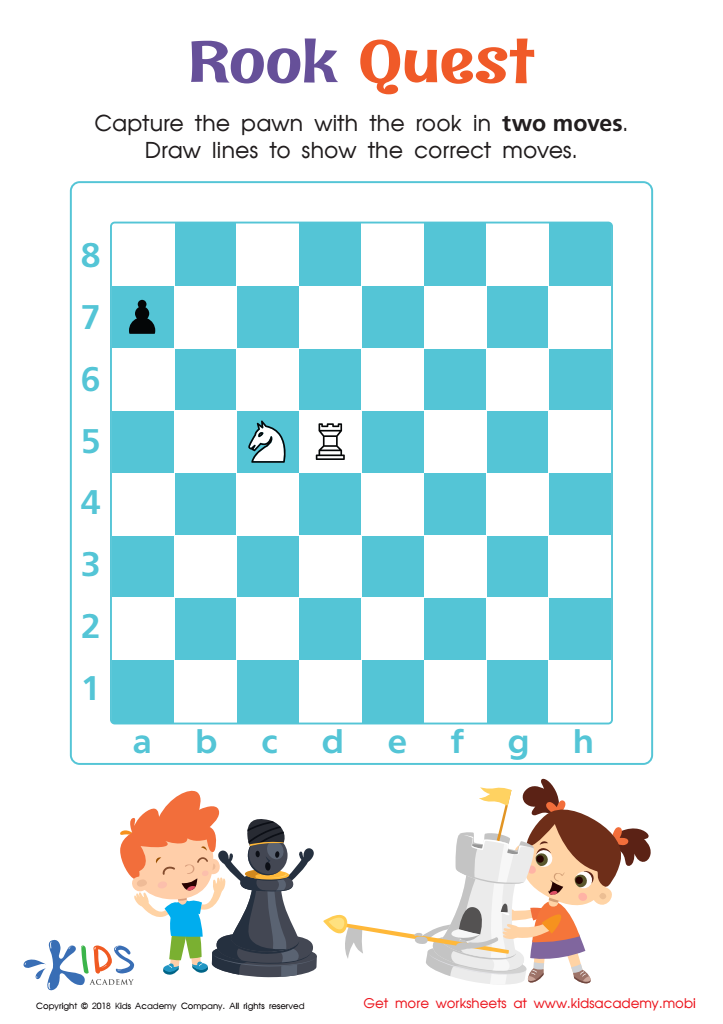

Rook Quest Worksheet
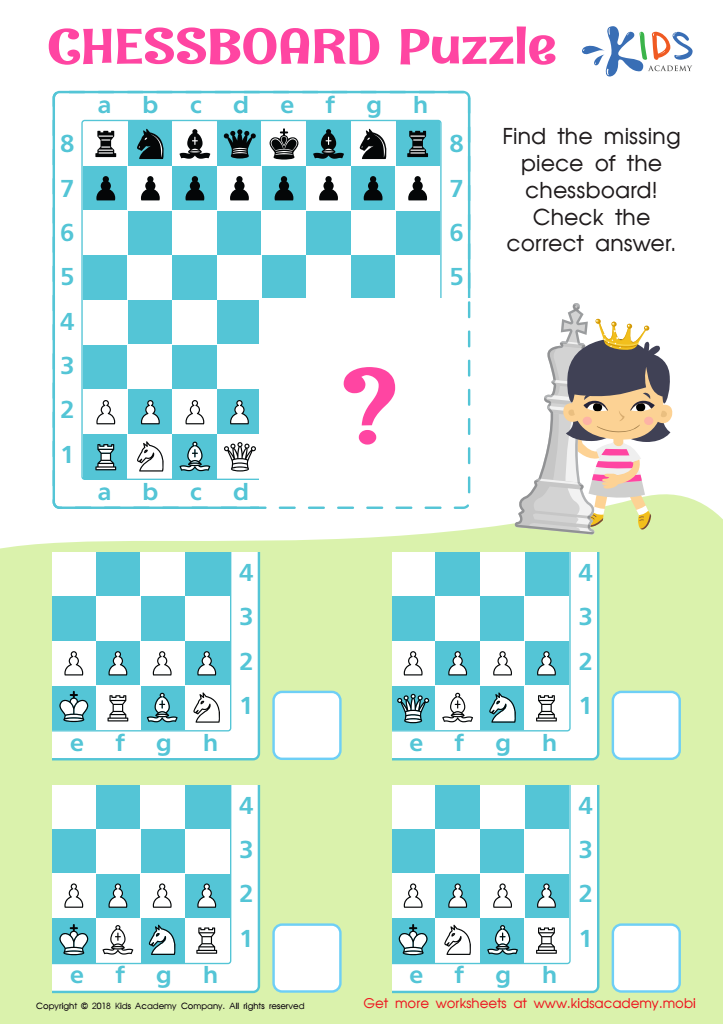

Chessboard Puzzle Worksheet
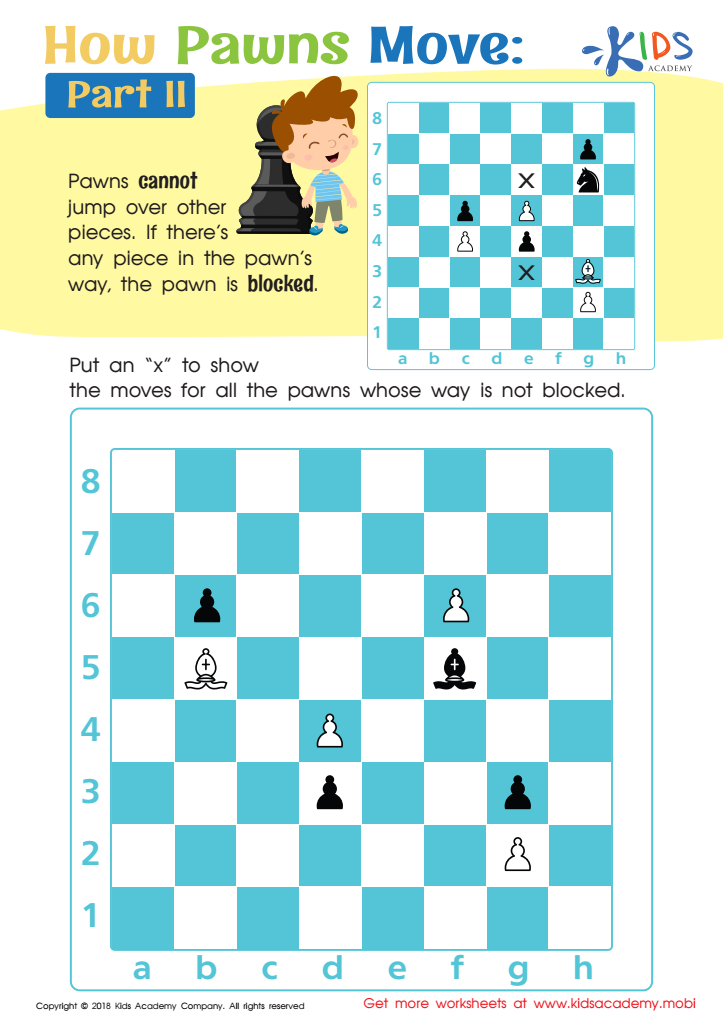

How Pawns Move: Part II Worksheet
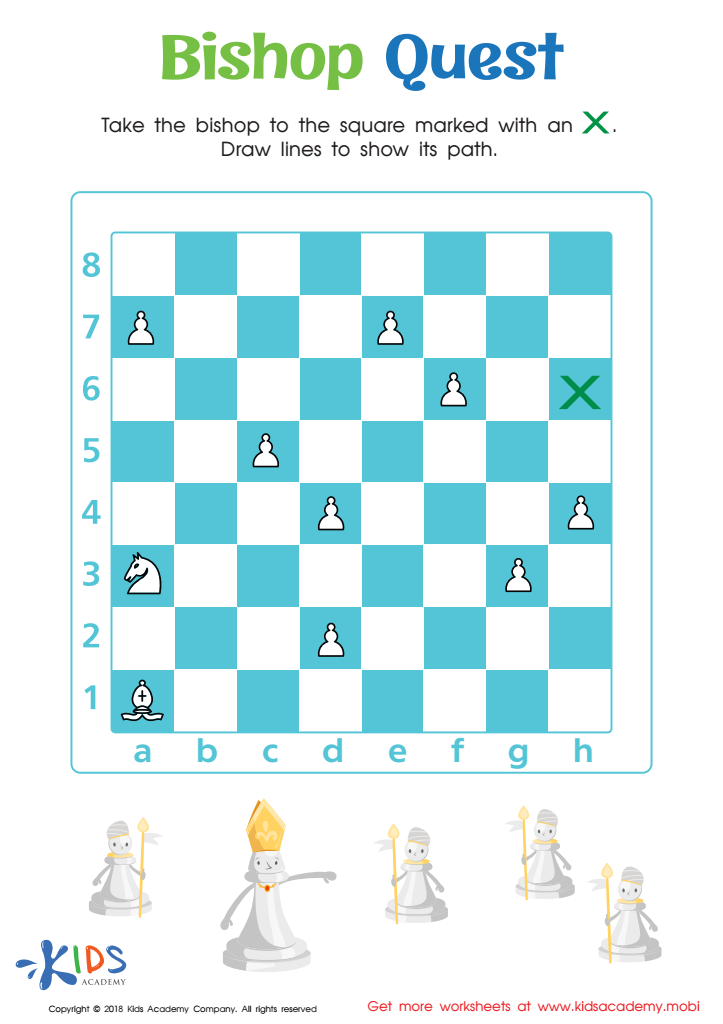

Bishop Quest Worksheet
Problem-solving skills are vital for 6-year-olds, and engaging them in activities like chess can significantly enhance these abilities. Chess presents children with scenarios that require critical thinking, foresight, and strategic planning. By learning to navigate the complexities of the game, young players develop their ability to analyze situations, foresee consequences of actions, and make informed decisions—key components of effective problem-solving.
Furthermore, chess encourages patience and perseverance, teaching children that failure and mistakes are part of the learning process. This resilience builds self-confidence, making them more willing to tackle challenges in both academic and personal settings. Since problem-solving is fundamental in math, science, and everyday situations, honing these skills early sets the foundation for a strong educational trajectory.
For both parents and teachers, promoting activities like chess reflects a commitment to holistic development. It provides children with tools to think independently, work collaboratively, and manage conflict—skills essential in the 21st century. By prioritizing problem-solving skills through engaging activities, adults can cultivate critical thinkers who are equipped to face future challenges with confidence and creativity. Ultimately, normalizing chess as a fun, educational tool can lead to greater cognitive growth and achievement in young learners.
 Assign to My Students
Assign to My Students








